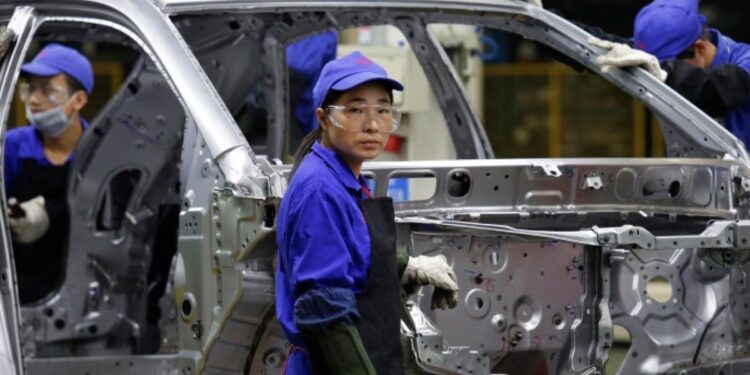The European Union on Thursday provisionally imposed tariffs of up to 38% on imported Chinese electric cars, ahead of a final decision in November, the European Commission said, accusing Beijing of illegally subsidizing manufacturers of the vehicles.
The new fees, which are in addition to the 10% already applied to Chinese cars, will go into effect on Friday.
After a wide-ranging investigation into Chinese state support for the electric car industry that began in October 2023, Brussels announced these new duties on June 12, while launching discussions with Beijing to try to resolve the issues identified and defuse the risks of a trade war.
time limit
The Commission has four months to decide whether to impose the new tariffs permanently, leaving the door open to possible dialogue with Beijing. The final tariffs will be valid for five years.
Brussels is following in the footsteps of Washington, which announced in mid-May that it would increase customs duties on Chinese electric cars to 100%, compared to 25% previously.
The European car industry, which is a leader in the manufacture of gasoline and diesel engines, fears that its industries will deteriorate if it fails to stop the announced increase in cars manufactured in China, which has a clear lead in the field of electric cars.
Cars from China account for about 22% of the European market, up from 3% three years ago, according to industry estimates. Chinese brands account for 8% of electric cars sold in the EU.
Economic damage
Based on its investigations, Brussels concluded that China’s electric vehicle sector “benefits from unfair subsidies that pose a risk of economic harm to European producers.”
As Chinese electric vehicle production and sales increase in international markets, countries such as Canada and the United States have imposed tariffs to protect their auto industries.
The Chinese government provided at least $231 billion in subsidies to the electric-vehicle sector between 2009 and the end of last year, according to Bloomberg.



